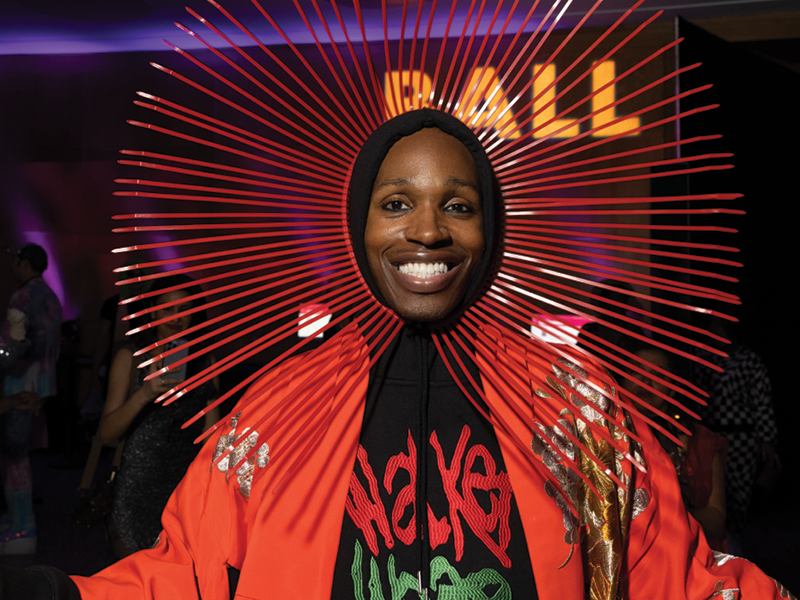Once again it's Library Privacy Week here in New York City! This is the time of year when New Yorkers can take advantage of an extra concentration of classes and other resources at library branches throughout the city, as well as virtually. Library Privacy Week is an initiative of NYC Digital Safety, a collaborative project of Brooklyn Public Library, the New York Public Library, Queens Public Library, and METRO Library Council that helps train library staff to be reliable sources of information on digital privacy and security.
Want to dive into some of these resources yourself? The NYC Digital Safety website has new videos, glossaries, resource guides, and full curricula on topics including “My Personal Information Was Stolen”; how to deal with spam, hacks, and doxing; and “Navigating Technology with Reflection.” If you’re an educator or trainer of any kind, take advantage of these curriculum modules to build out instruction of your own!
A number of books have been published in the last few years about online privacy and security and how they’re connected to race, class, and other deeply rooted societal issues. For some absorbing reads on these themes—throughout the year, not just during Library Privacy Week—here’s a booklist.
The Fight for Privacy: Protecting Dignity, Identity, and Love in the Digital Age, Danielle Keats Citron
Publisher's summary: A masterful new look at privacy in the twenty-first century, The Fight for Privacy takes the focus off Silicon Valley moguls to investigate the price we pay as technology migrates deeper into every aspect of our lives: entering our bedrooms and our bathrooms and our midnight texts; our relationships with friends, family, lovers, and kids; and even our relationship with ourselves.
Living in Data: A Citizen's Guide to a Better Information Future, Jer Thorp
Publisher's summary: To live in data in the twenty-first century is to be incessantly extracted from, classified and categorized, statisti-fied, sold, and surveilled. Data—our data—is mined and processed for profit, power, and political gain. In Living in Data, Thorp asks a crucial question of our time: How do we stop passively inhabiting data, and instead become active citizens of it?
Race After Technology: Abolitionist Tools for the New Jim Code, Ruha Benjamin
Publisher's summary: From everyday apps to complex algorithms, Race After Technology cuts through tech-industry hype to understand how emerging technologies can reinforce white supremacy and deepen social inequity. Benjamin argues that automation, far from being a sinister story of racist programmers scheming on the dark web, has the potential to hide, speed up, and deepen discrimination while appearing neutral and even benevolent when compared to the racism of a previous era.
Artificial Unintelligence: How Computers Misunderstand the World, Meredith Broussard
Publisher's summary: In Artificial Unintelligence, Meredith Broussard argues that our collective enthusiasm for applying computer technology to every aspect of life has resulted in a tremendous amount of poorly designed systems. We are so eager to do everything digitally—hiring, driving, paying bills, even choosing romantic partners—that we have stopped demanding that our technology actually work. If we understand the limits of what we can do with technology, Broussard tells us, we can make better choices about what we should do with it to make the world better for everyone.
"I Have Nothing to Hide" and 20 Other Myths About Surveillance and Privacy, Heidi Boghosian
Publisher's summary: Attorney and data privacy expert Heidi Boghosian unpacks widespread myths around the seemingly innocuous nature of surveillance, sets the record straight about what government agencies and corporations do with our personal data, and offers solutions to take back our information. "I Have Nothing to Hide" is both a necessary mass surveillance overview and a reference book. It addresses the misconceptions around tradeoffs between privacy and security, citizen spying, and the ability to design products with privacy protections. Boghosian breaks down misinformation surrounding 21 core myths about data privacy.
Silicon Values: The Future of Free Speech Under Surveillance Capitalism, Jillian York
Publisher's summary: The Internet once promised to be a place of extraordinary freedom beyond the control of money or politics, but today corporations and platforms exercise more control over our ability to access information and share knowledge to a greater extent than any state. From the online calls to arms in the thick of the Arab Spring to the contemporary front line of misinformation, Jillian York charts the war over our digital rights. She looks at both how the big corporations have become unaccountable censors, and the devastating impact it has had on those who have been censored. In Silicon Values, York looks at how our rights have become increasingly undermined by the major corporations' desire to harvest our personal data and turn it into profit.
This blog post reflects the opinions of the author and does not necessarily represent the views of Brooklyn Public Library.
Post a Comment
While BPL encourages an open forum, posts and comments are moderated by library staff. BPL reserves the right, within its sole discretion, not to post and to remove submissions or comments that are unlawful or violate this policy. While comments will not be edited by BPL personnel, a comment may be deleted if it violates our comment policy.
eNews Signup
Get the latest updates from BPL and be the first to know about new programs, author talks, exciting events and opportunities to support your local library.







